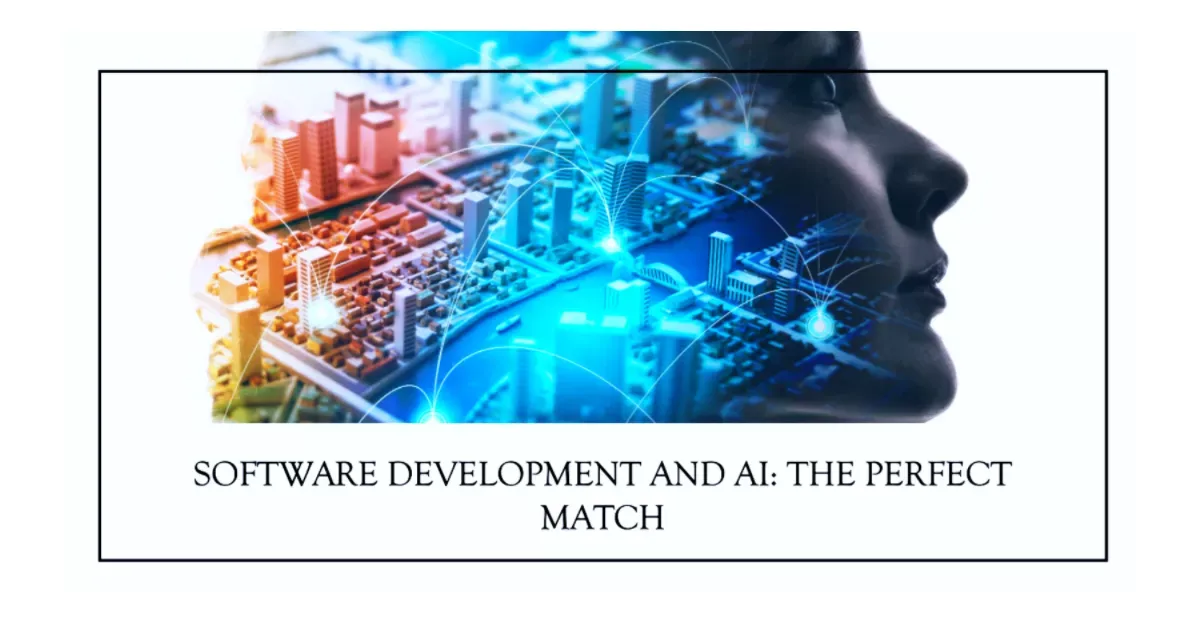
Revolutionizing Software Development with Artificial Intelligence: What You Need to Know
Learn how AI is transforming software development. Explore here its tools, benefits and limitations.
Artificial Intelligence (AI) has revolutionized human activity, extending to different areas of society with increasingly successful results. AI systems use data and algorithms to learn patterns and rules, allowing them to make decisions and perform specific tasks more efficiently. Its development dates back to the 1960s, with the development of neural networks, which paved the way to the current results and future unthinkable breakthroughs.
It is now used in a variety of applications, such as chatbots, recommender systems, speech recognition, and computer vision. As a curious fact, the main banner of this article was made with the artificial intelligence Microsoft designer. This is a powerful tool, with several editing options.
It is also being used in areas such as medicine and agriculture to help make more informed decisions. Software development is one of the branches that has benefited the most from the evolution of AI. Here is what you should know about it.
 Figure 1. Image created with artificial intelligence Microsoft Designer.
Figure 1. Image created with artificial intelligence Microsoft Designer.
The close relationship between software development and artificial intelligence is undeniable. AI, in effect, depends on software development to operate, and thanks to technological advances in AI, the quality of the software produced has improved exponentially.
Artificial intelligence has found its place in the different stages of software development. Thanks to a wide variety of tools, developers can approach their tasks much more efficiently, significantly reducing the time required to complete them.
Test case design is an essential part of the software development process. In this regard, artificial intelligence has become a valuable tool for developers. It allows them to design test cases more efficiently and accurately.
Thanks to AI, developers can analyze large amounts of data and detect patterns and anomalies. It also contributes to the identification of possible usage scenarios that may not have been previously considered.
Software implementation is a critical and complex process that requires a large amount of resources and time. AI makes it possible to automate many tasks related to this process, such as continuous integration and continuous delivery.
In turn, it is used to analyze large amounts of data and detect patterns and relationships that can be useful in designing architectures. This allows developers to make informed decisions about the selection of components and technologies. In this way, it is possible to improve software quality and efficiency significantly.
During requirements validation, artificial intelligence also plays a role. It allows us to complete similar projects and to alert of previous defects. It can also detect non-explicit conditions. Another advantage of the use of AI is the identification of security risks (in requirement texts). Likewise, it allows the generation of common requirements from schemes and patterns.
Another interesting use of artificial intelligence in software development is its contribution to team building. This is a functionality of great value we could say that it is the basis of a good result. Its contribution is given in the evaluation of competencies, defining the appropriate competencies for each responsibility. In addition, it can establish compatibility between people of different profiles.
These functionalities contribute to the proper allocation of human resources to software project teams. Some of its derived benefits are the maximization of workers’ competencies and the minimization of incompatibilities between members. It also provides a basis for workload balancing and optimal task distribution.
Several AI tools have become faithful allies for software developers in 2023. Here are the ones you can’t afford to miss:
- Scribe: Process documentation tool that helps developers create, manage, and maintain software documentation. Scribe uses natural language processing (NLP) techniques to identify key processes and generate accurate and complete documentation.
- Tabnine: Its function lies in code completion. It employs advanced machine learning techniques to write code faster and with fewer errors. Tabnine uses an AI language model to predict the code the developer is writing and offers helpful suggestions.
- GitHub Copilot: Code completion and prediction tool that uses deep learning techniques to provide context-based code suggestions. GitHub Copilot helps developers write code faster and more efficiently.
- Otter.Ai: Used for transcribing meetings using processing techniques that allow you to automatically convert audio to text. Otter.Ai is useful for documenting meetings and software discussions.
- DeepCode: Useful in code analysis to detect bugs and vulnerabilities. DeepCode is a static analysis tool that analyzes code for security problems and offers suggestions for fixing them.
- Amazon CodeGuru: A code review tool that uses machine learning techniques to analyze code and offer suggestions for improvement. CodeGuru is very useful for developers who want to improve code quality and reduce bugs.
It is undeniable that AI has revolutionized the way software works and develops, providing countless benefits. But while we would love to say that everything is perfect in the world of AI, the reality is that this is not the case. It is important to recognize that it also has its associated weaknesses and concerns. Therefore, we present its main advantages and disadvantages in software development, so that you can make informed and knowledgeable decisions.
Advantages and disadvantages of AI
One of the most notable advantages of AI is process automation, which allows machines to perform repetitive and tedious tasks automatically, freeing up time for developers to focus on more creative and innovative tasks. It also reduces human error by reducing human intervention in certain processes, such as typos when entering data. Boosting creativity is another advantage of AI, as it can help developers explore more innovative and complex solutions by eliminating monotonous and repetitive tasks.
Another notable benefit is 24/7 availability, which enables faster and more efficient software development. It can also improve software quality by identifying bugs and potential problems in the code and optimizing the performance and efficiency of applications. Importantly, AI is driving the emergence of new tools and platforms, such as MLaaS and AutoML, that facilitate the creation of AI models quickly and easily.
However, as mentioned above, there are also associated disadvantages. For example, implementing AI in software development can be costly, as hardware and software must be constantly updated to meet the latest requirements. Another major limitation of AI is that it cannot fully replicate human emotion and creativity. It is worth noting that very focused prompts can develop some creativity, but are still incomparable to human creativity.
One of the biggest impacts of AI is the replacement of developers’ work, as it could automate up to 40%. This has been one of the most controversial debates in recent months, not only in software development but also in various spheres of society. Although it is currently presented as a support tool, it is difficult to predict what the future of AI will bring.
As it continues to evolve, AI is changing the way we interact with the world around us. Particularly in software development, AI has made great contributions in terms of productivity and efficiency, leading to greater innovation and better solutions to real-world problems. However, as with any technology, it is important to keep in mind that AI must be used ethically and responsibly to maximize its benefits and minimize its risks.